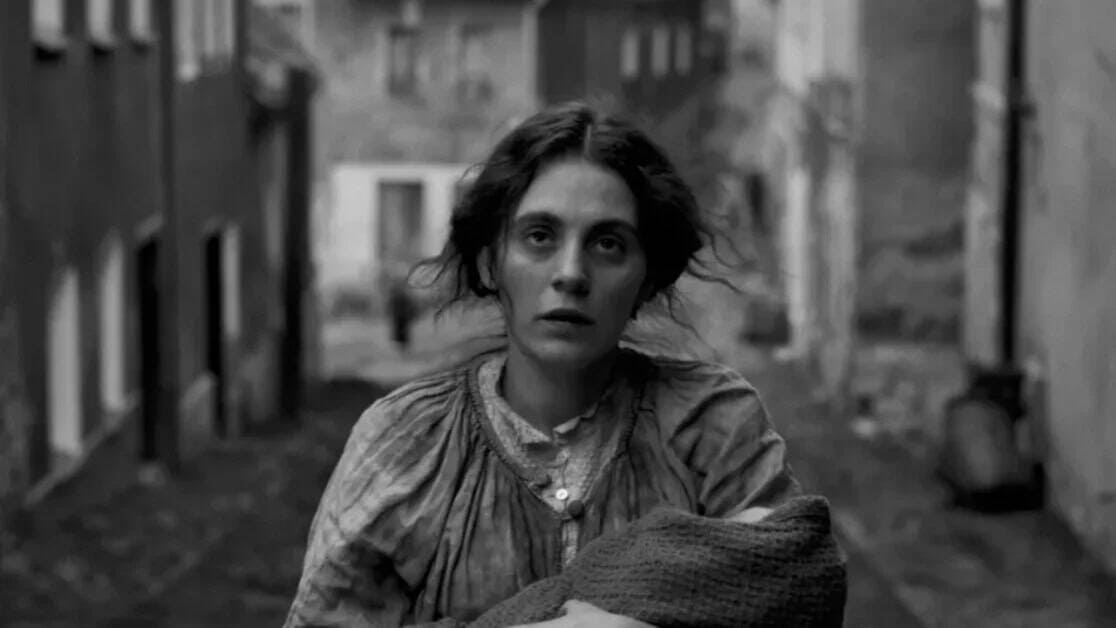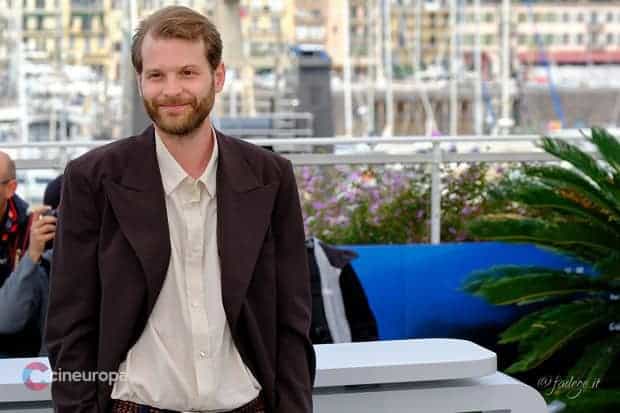Magnus von Horn's The Girl with the Needle (Pigen med nålen) is a stark, black-and-white period drama that delves into the harrowing realities of post-World War I Copenhagen. Loosely inspired by the true story of Danish serial killer Dagmar Overbye, the film explores themes of desperation, societal neglect, and the blurred lines between victim and perpetrator.
🧶 Plot Overview
Set in 1919, the narrative follows Karoline (Vic Carmen Sonne), a young seamstress struggling to survive after her husband, Peter (Besir Zeciri), is presumed dead in the war. Facing poverty and an unplanned pregnancy, Karoline seeks assistance from Dagmar (Trine Dyrholm), a woman who ostensibly runs an adoption agency for unwanted children. As Karoline becomes entangled in Dagmar's operations, she uncovers a horrifying truth: the babies are not being placed in new homes but are instead being murdered. The film portrays Karoline's descent into this grim world, her moral dilemmas, and her eventual quest for redemption.
🎥 Directorial Vision
Magnus von Horn, a Swedish-Polish filmmaker, brings a unique perspective to this chilling tale. A graduate of the Polish National Film School in Łódź, von Horn is known for his exploration of complex human emotions and moral ambiguities. His previous works, such as The Here After (2015) and Sweat (2020), have garnered critical acclaim for their psychological depth and stylistic precision.
In The Girl with the Needle, von Horn employs stark black-and-white cinematography to evoke the bleakness of the era and the protagonist's internal turmoil. The film's aesthetic draws comparisons to the works of Lars von Trier and Carl Theodor Dreyer, emphasizing its expressionist influences. Von Horn's direction ensures that the film is not just a historical recounting but a timeless exploration of human despair and resilience.
🧵 Themes and Symbolism
At its core, The Girl with the Needle examines the societal failures that lead individuals to commit unthinkable acts. Karoline's journey reflects the desperation faced by many women in post-war Europe, highlighting issues of poverty, lack of social support, and the stigmatization of single mothers. Dagmar's character, while monstrous in her actions, is portrayed with a complexity that challenges viewers to consider the societal conditions that breed such horrors.
The film also delves into themes of motherhood, guilt, and redemption. Karoline's transformation from a passive participant to someone who confronts the atrocities around her underscores the human capacity for change and the struggle to reclaim one's morality in the face of overwhelming darkness.
🎬 Critical Reception
Premiering at the 77th Cannes Film Festival, The Girl with the Needle received critical acclaim for its powerful storytelling and haunting visuals. The film was nominated for the Palme d'Or and later selected as Denmark's entry for the Best International Feature Film at the 97th Academy Awards. Critics have praised the film's unflinching portrayal of its subject matter and the standout performances of its lead actors.
🎟️ Screening Details at NYPFF 2025
We are honored to present The Girl with the Needle at this year's New York Polish Film Festival:
- Date: Friday, May 30, 2025
- Time: 8:30 PM
- Venue: Scandinavia House, 60 Park Ave, NYC
- Tickets: Available at nypff.com
Join us for this compelling screening and experience a film that challenges, provokes, and resonates long after the credits roll.




0 comments